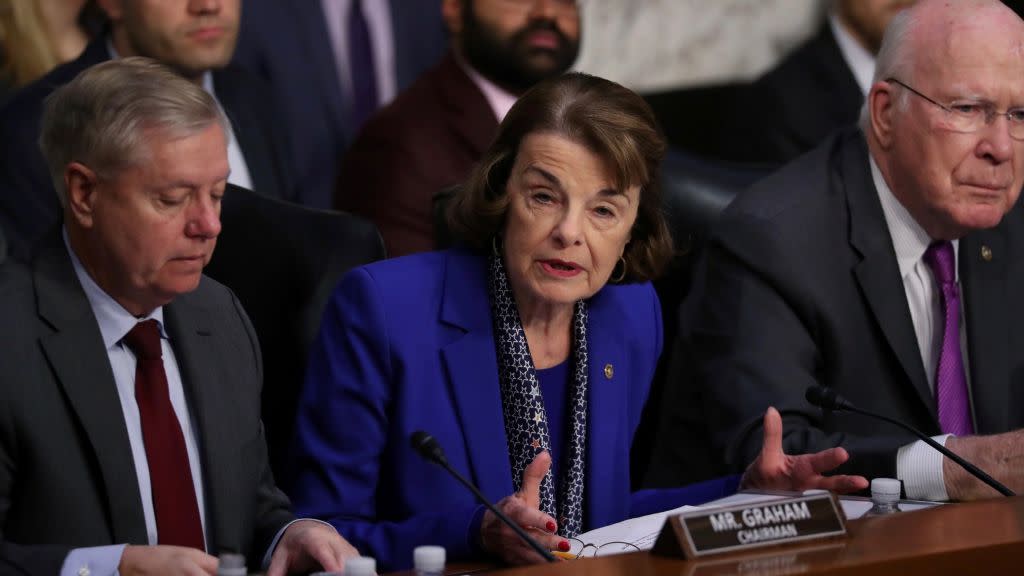Dianne Feinstein got William Barr to commit to leaving Robert Mueller alone

The Senate Judiciary Committee’s questioning of Donald Trump’s attorney general nominee William Barr at confirmation hearings today (Jan. 15) has centered on a 20-page legal memo Barr wrote last year, which argued against Robert Mueller’s investigation into possible Trump team ties to Russia and its meddling with the 2016 election.
Barr’s opening statement attempted to head off these questions and walk back assertions in the memo that the special counsel’s investigation was illegal. He hopes to assure the committee that he will support the probe if confirmed.
Dianne Feinstein of California, the ranking Democrat, wasn’t satisfied. She asked Barr about the Mueller investigation herself, telling the nominee—whose memo was so expansive—to answer briefly, just “yes or no” on five questions. Barr, who had some trouble keeping his answers short at first, committed to supporting the special counsel’s role and upholding the rule of law.
Here’s what was asked and answered in sum:
Q: Will you commit to not interfering with the scope of special counsel’s investigation. A: Yes.
Q: Will you commit to funding the special counsel’s investigation? A: Yes.
Q: Will you commit to not terminating special counsel Mueller without good cause? A: Absolutely.
Q: Will you commit to notifying Congress for denial of any funds or other denials of special counsel’s requests? A: The notifications require it.
Q: Will you commit to making the special counsel’s report public? A: Yes, consistent with regulations.
Feinstein also asked Barr, who previously served as attorney general under George H.W. Bush from 1991-1993, if his arguments opposing Mueller’s probe were based on pure “speculation,” given that he was currently stating that he supported special counsel’s investigation and that there is a legal basis for it.
Barr said the memo was “informed” by the little he knew about the facts of the case before, more or less admitting it was indeed speculation (though he clearly hesitated to use the word).
The senator also inquired as to Barr’s relationship with the president. He admitted that Trump had discussed him joining his personal defense team as counsel on the Mueller investigation in June 2017. It was “one conversation related to private representation,” Barr said. He claims not to have discussed the substance of the investigation with Trump then or since.
Barr tried to reassure Feinstein that he will serve the American people and the Constitution if confirmed. “If a president attempts to intervene in a case that he has a stake in, that would be a breach of his constitutional duties,” he said.
Sign up for the Quartz Daily Brief, our free daily newsletter with the world’s most important and interesting news.
More stories from Quartz:

